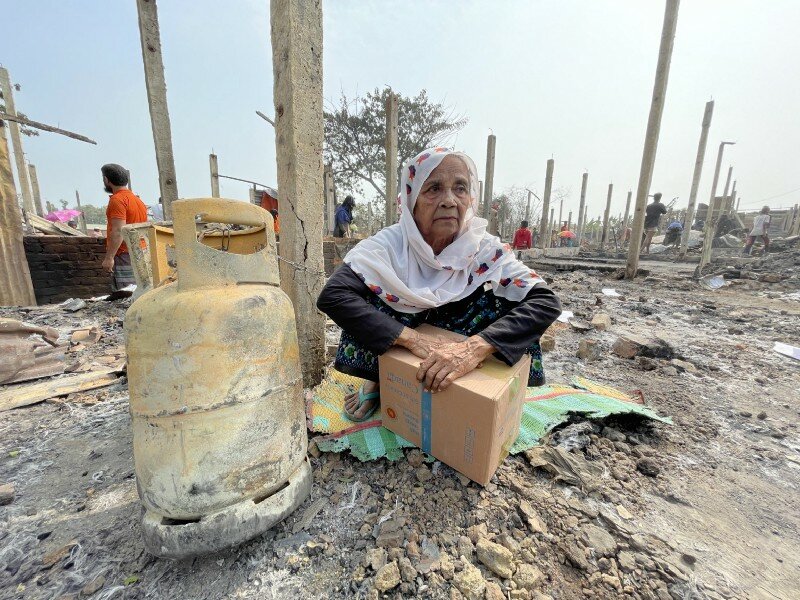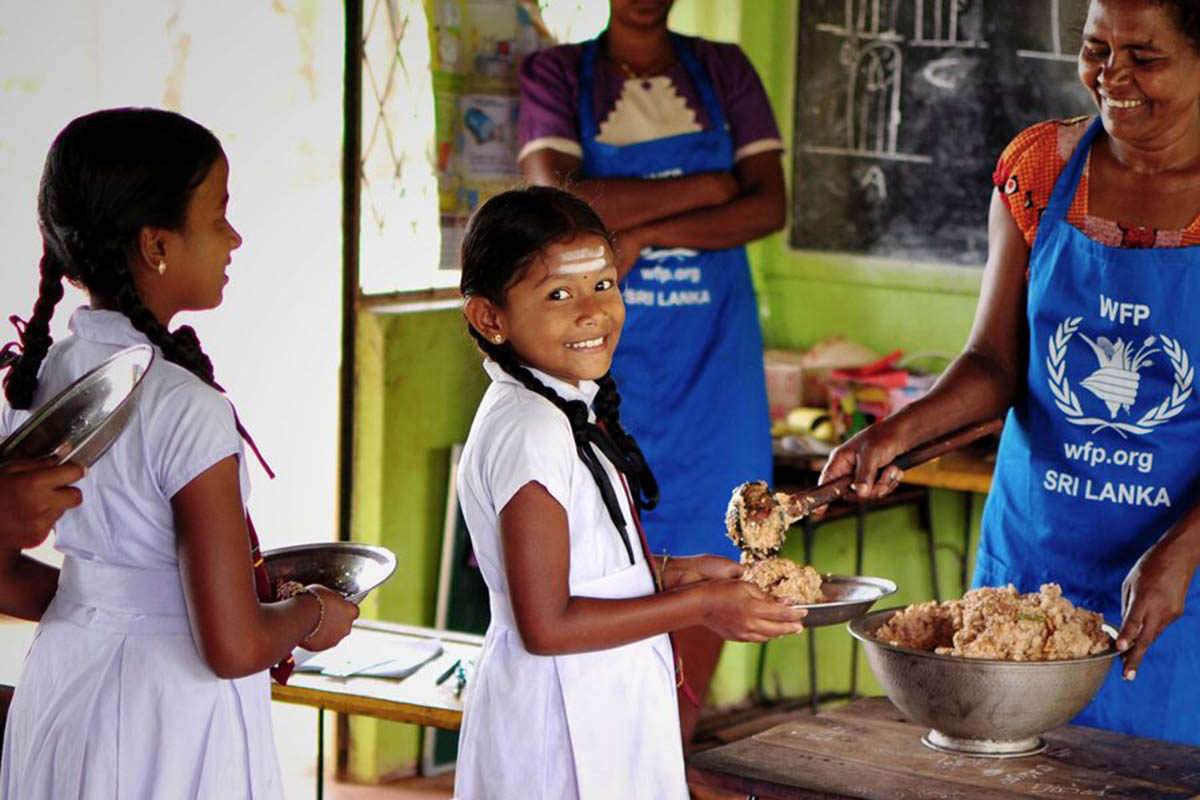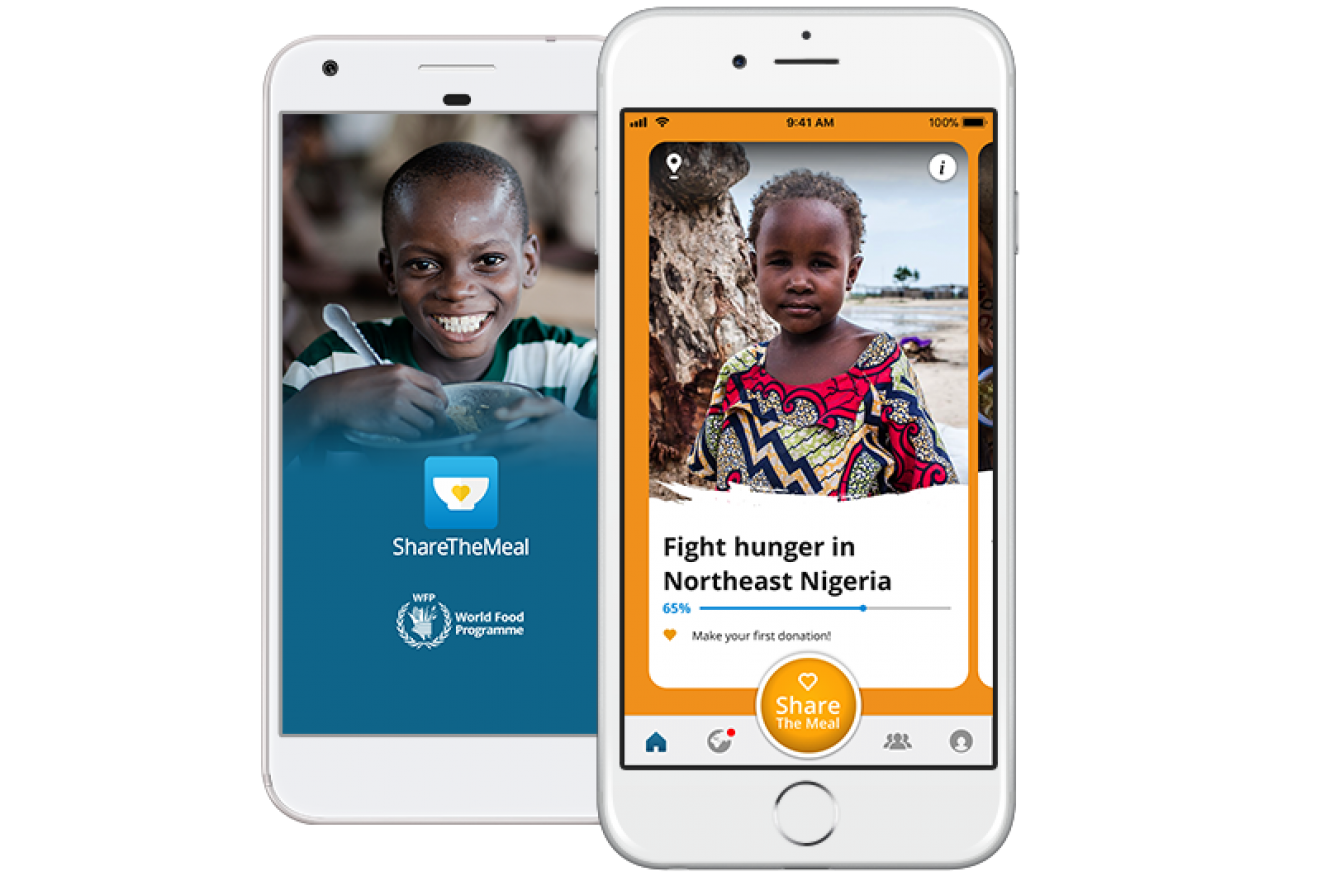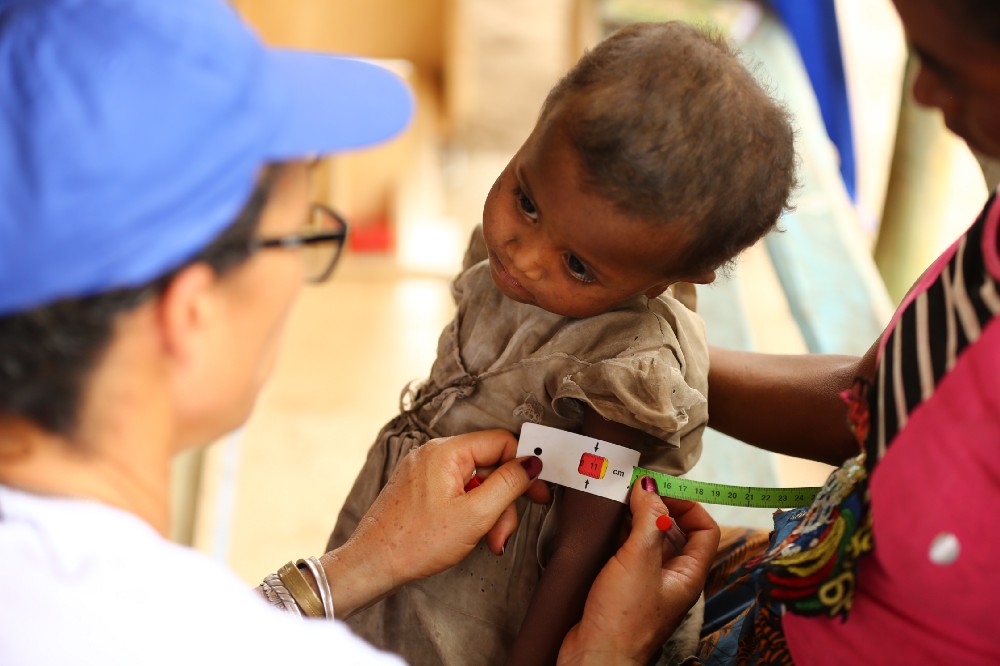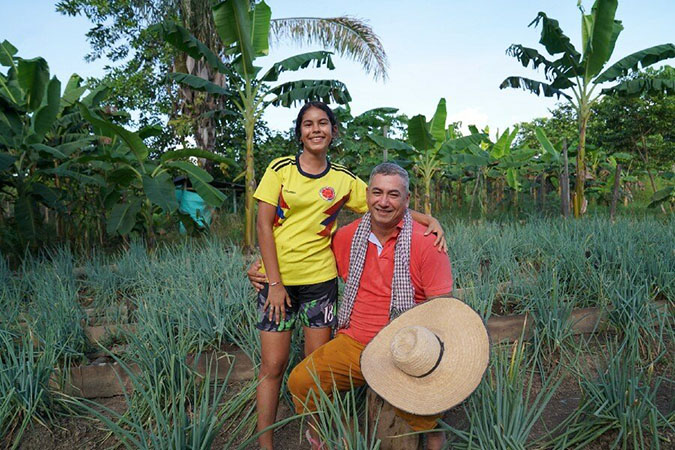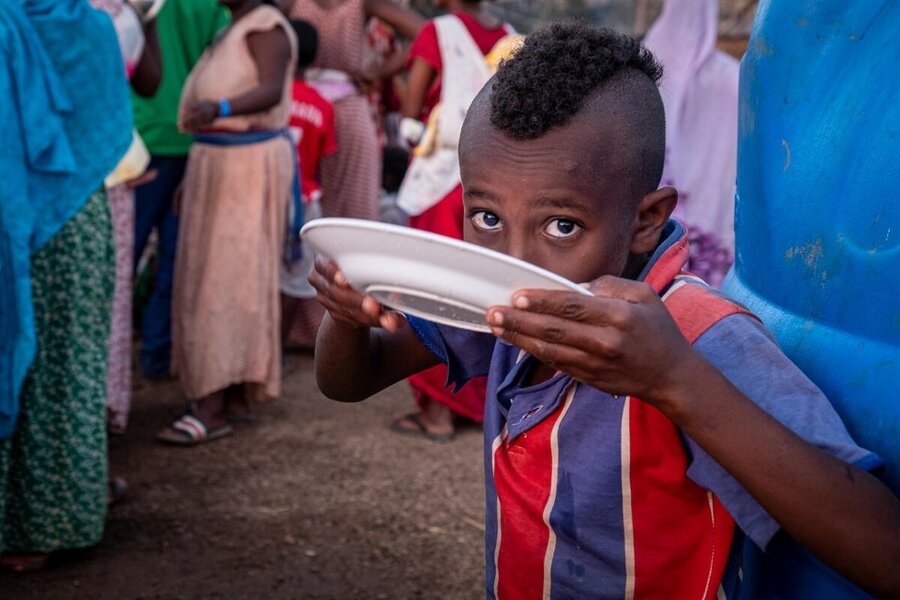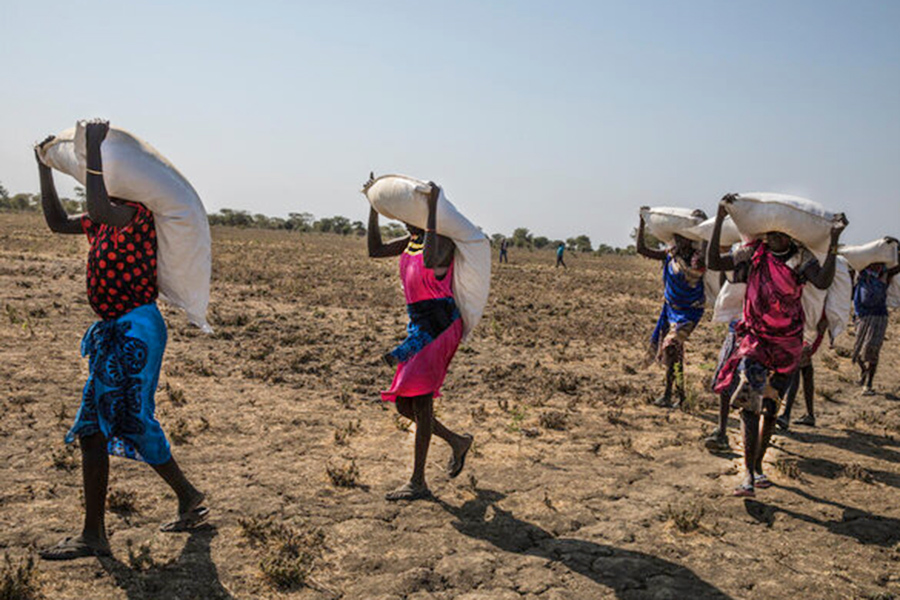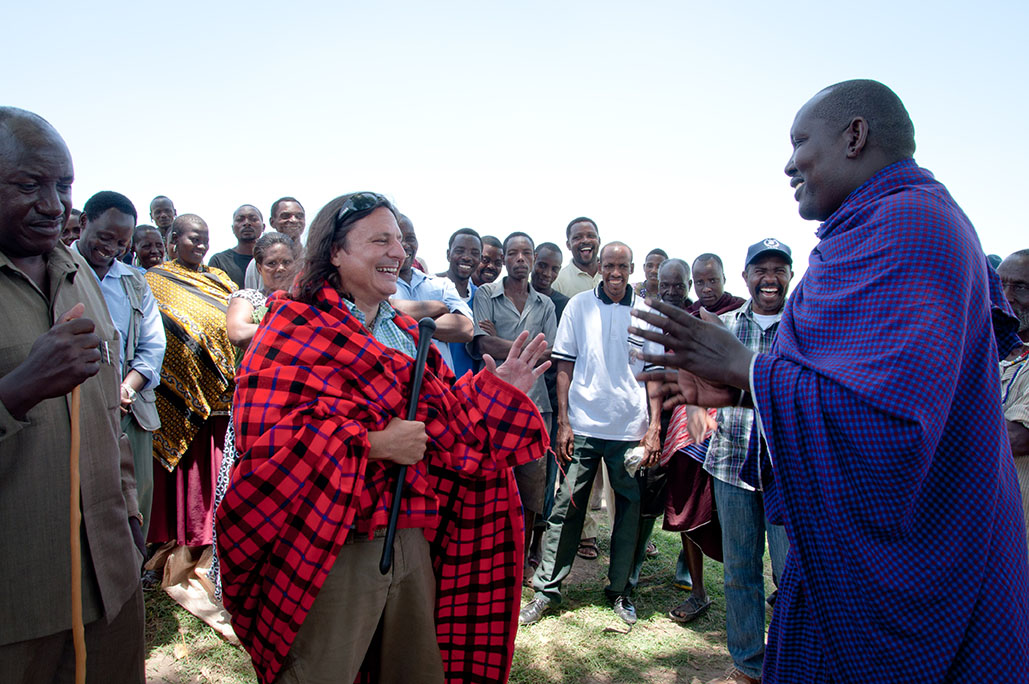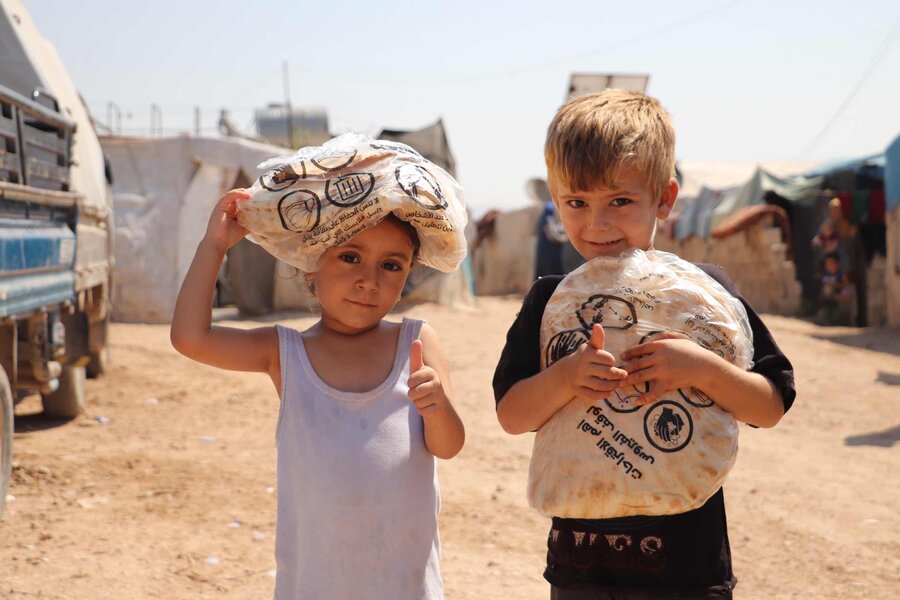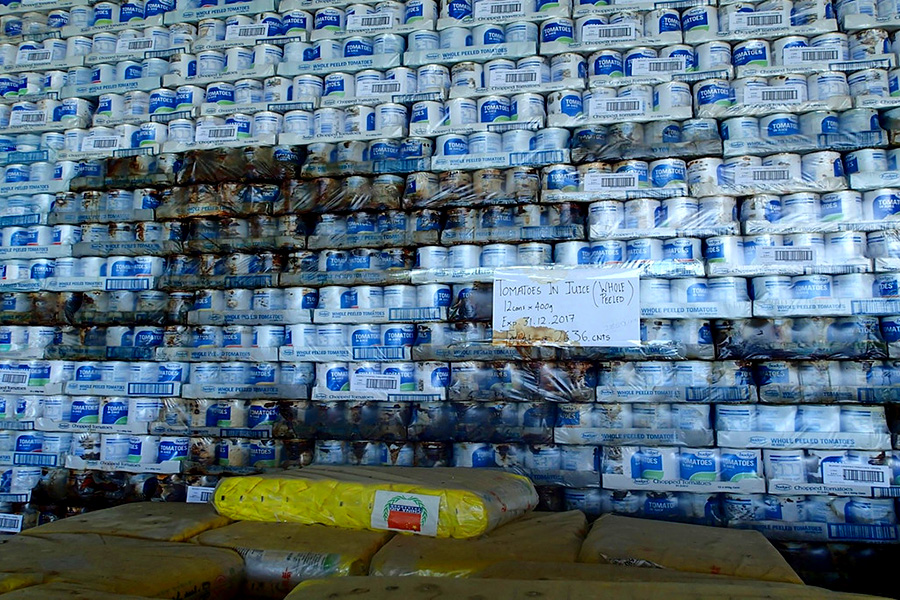Nosiba Khatun sits amongst the ashes of what used to be her home, her only possession now is the food assistance she just received from WFP. 500 shelters were destroyed in the fire. Within just hours of fire breaking out, WFP sprung into action. It has provided around 3,500 people from the camps, and the wider community, with more than 21,000 hot meals. Nosiba is one of 22,500 Rohingya refugees who live in the Nayapara Registered Refugee Camp in Cox's Bazar, which is run by UNHCR. She and her family have been living here since the 1990s when one of the first groups of Rohingya fled violence in Myanmar and sought safety in neighbouring Bangladesh.
WFP
WFP reports that the coronavirus pandemic is undermining efforts to improve diets and nutrition for nearly 2 billion people in Asia and the Pacific, according to an FAO report published today. The Asia and the Pacific Overview of Food Security and Nutrition states that 1.9 billion people were unable to afford a healthy diet in 2019—the year that is the focus of the study—while estimates suggest the disruption caused to livelihoods and economies by COVID-19 only worsened problems in 2020, hitting women and children aged under 5 hardest, in spite of economic growth.
In the year the coronavirus pandemic deepened the global hunger crisis—the World Food Programme (WFP) was at hand, providing life-saving assistance, working to save and change lives, against all odds. Below is a selection of stories from our staff around the world. From building fragile nations’ resilience and helping them graduate out of food insecurity to providing cash assistance that empowers the stigmatized LGBT+ community, WFP saves and changes lives around the world. Pictured is a community resilience project that helps people in Central Sahel fight against the impacts of conflict and hunger through rehabilitation of barren land.
WFP’s fundraising app, ShareTheMeal, was recognized by both Google and Apple as one of the best apps of 2020.
Fierce rivals by tradition, football clubs Roma and Lazio, of Italy's top-tier Seria A league, have found common cause: supporting the World Food Programme's Stop The Waste campaign. The drive, now in its third year, aims to raise awareness around how food waste plays into the hands of global hunger. As part of the collaboration, players are being encouraged to advocate for healthy diets in public engagements and on social media, while pressing home the importance of reducing food waste.
Madagascar: Drought and COVID-19 push 1.5 million people to the brink
"People dig into the sand to find water but they rarely find any," WFP's Aina Andrianalizaha, who is visiting affected areas, wrote. "They can no longer plant and have, as a result, come to offer to exchange their scarce cooking utensils for a piece of cassava." According to the latest Integrated Food Phase Security Classification figures, 100,000 children aged under 5 are in danger of acute malnutrition — 19,000 appear to be in a ‘severe' situation. The World Food Programme (WFP) is calling for nearly US$35 million to avert catastrophe in the country of 25.5 million people in coming months.
The Training and Reincorporation Centre may sound forbidding but it’s a place where former combatants in Colombia’s conflicts can learn poultry and fish farming with the support of the World Food Programme (WFP). Edgar, a FARC ex-combatant, is one of 187 former combatants and their families who take part in agricultural projects as part of a process to bring them all back into mainstream society. The aim is to train people to diversify both the production and consumption of food; while providing access to local markets.
WFP responds as refugees from Ethiopia seek sanctuary in Sudan
Having taken up his current position as WFP Country Director in Chad after experiences in war-torn countries — most recently, the Democratic Republic of the Congo (DRC) — Claude Jibidar has witnessed first-hand how conflict and hunger feed each other. “While conflict is widely acknowledged as one of the main drivers of hunger, there are also many examples where hunger is at the roots of conflict… We must come together to seek pathways to peace and stability and avert the loss of a generation of children to hunger and malnutrition induced by conflict,” says Jibidar.
In this latest episode of Awake at Night, host Melissa Fleming speaks with Richard Ragan, the Country Director of the World Food Programme in Bangladesh. “I don't want one person that I'm responsible for to be hungry. And you know, that, that keeps me up at night, for sure. But the thing that scares me, probably more than anything, and, you know, there's no vaccination for it is, is climate change. You know, I think COVID is a wake-up call for all of us, it does not discriminate. It's like the waves or the mountains, it doesn't care.”
After more than nine years of conflict, life in Syria has never been harder. Food prices are soaring and the life families hoped they would rebuild is further away than ever. In the past year alone, the price of basic foods has increased by a staggering 247 percent. Putting a basic meal on the table has never been so difficult during this crisis, which kicked off in 2011. Each month WFP provides life-saving food to 4.8 million Syrians.
Donating goods overseas after disasters can be unhelpful and even harmful, and with the Pacific Cyclone season now in full swing, WFP has begun a campaign urging people to donate more responsibly.
‘Dear people of the world’: Two girls in Yemen, two letters for Children’s Day

